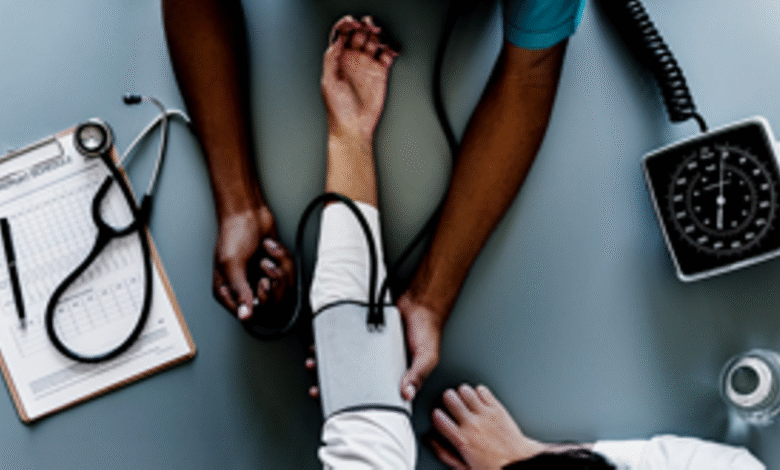HIPAA Violations in New York What Patients and Providers Need to Know
HIPAA violations in New York can lead to heavy fines & legal action. Learn how patients & providers can protect sensitive health data & stay compliant.

HIPAA violations in New York pose significant risks for both healthcare providers and patients, with strict federal regulations governing the protection of sensitive medical information. The Health Insurance Portability and Accountability Act (HIPAA) establishes critical privacy and security standards for handling protected health information (PHI). In a densely populated and highly regulated state like New York, where healthcare systems handle vast amounts of patient data daily, compliance failures can lead to severe penalties, legal consequences, and loss of patient trust. Understanding these regulations is essential for avoiding costly mistakes and ensuring patient confidentiality.
For healthcare providers, HIPAA violations in New York can result in hefty fines, reputational damage, and even criminal charges in cases of willful negligence. Patients, meanwhile, must be aware of their rights regarding access to their medical records and how their data is shared. Common violations include unauthorized disclosures, inadequate cybersecurity measures, and improper disposal of records issues that can often be prevented with proper training and protocols. This article explores key aspects of HIPAA compliance in New York, offering actionable insights for providers and empowering patients to safeguard their personal health information.
HIPAA Violations in New York What Patients, Providers Need to Know
HIPAA’s Core Purpose and Regulations
The Health Insurance Portability and Accountability Act (HIPAA), established in 1996, safeguards patient privacy and ensures the security of health information through two key rules The Privacy Rule regulates how Protected Health Information (PHI) can be used, HIPAA Violations, or disclosed by healthcare providers, insurers, and related entities. The Security Rule mandates specific safeguards for Electronic Health Records (EHRs), requiring technical, physical, and administrative measures to prevent unauthorized access or breaches. HIPAA applies not only to “covered entities” like hospitals, clinics, and health plans but also extends to “business associates” third-party vendors handling PHI.
New York’s Stricter Compliance Landscape
While HIPAA sets federal standards, New York enforces additional privacy laws that often exceed these requirements. For example, The New York State Department of Health (NYSDOH) imposes stricter confidentiality rules, particularly for sensitive data like HIV status or mental health records. State-specific regulations, such as the SHIELD Act, enhance cybersecurity protections for personal data, including PHI, requiring broader breach notifications and safeguards. This dual layer of federal and state oversight means New York healthcare providers must navigate both HIPAA and local laws, with non-compliance risking penalties from multiple agencies.
Common HIPAA Violations in New York
Unauthorized Access or Disclosure of PHI
Employees accessing patient records without authorization is a common violation. This could happen out of curiosity, personal reasons, or negligence. For example, a hospital worker looking up a celebrity’s medical history without a legitimate reason would be a HIPAA Violations.
Failure to Secure Electronic Health Records
With the rise of digital health systems, cyber threats have increased. Hospitals and clinics must encrypt data, use secure passwords, and implement firewalls. A data breach due to weak cybersecurity measures can lead to significant fines.
Improper Disposal of Medical Records
Throwing away documents containing PHI without shredding them or failing to wipe hard drives before disposal can result in violations. Dumping sensitive records in regular trash bins is a HIPAA offense.
Lack of Employee Training
HIPAA requires staff to undergo regular training on privacy practices. If employees are unaware of protocols, they may accidentally share patient information via email, HIPAA Violations, or in person without proper safeguards.
Failure to Provide Patients with Access to Their Records
Patients have the right to request their medical records within 30 days. Denying or delaying access without a valid reason violates HIPAA.
Lost or Stolen Devices
Laptops, smartphones, or USB drives containing unencrypted PHI that are lost or stolen can lead to breaches. New York healthcare providers must ensure all portable devices are encrypted and password protected.
Penalties for HIPAA Violations in New York
The penalties for HIPAA violations in New York follow a strict tiered system based on the severity of negligence. For unintentional violations (Tier 1), fines range from 100−50,000 per incident, while violations due to reasonable cause (Tier 2) carry penalties. More serious cases involving willful neglect that are later corrected (Tier 3) face violation. The most severe penalties (Tier 4) apply to uncorrected willful neglect, with mandatory 50,000finesperviolationupto1.5 million annually. In egregious cases, criminal charges may be HIPAA Violations particularly for knowingly selling or misusing PHI for personal gain, which can lead to federal prison sentences of up to 10 years.
How Patients Can Protect Their Rights
New York patients play a vital role in protecting their own medical privacy under HIPAA. They should regularly request copies of their medical records to review for accuracy and detect any unauthorized disclosures. If patients suspect their privacy rights have been violated, they should promptly file a complaint with the Office for Civil Rights (OCR), the federal agency that enforces HIPAA Violations regulations. When sharing health information online or over the phone, patients must exercise caution verifying the identity of recipients and avoiding unsecured communication methods.
Best Practices for Healthcare Providers
To maintain HIPAA compliance and avoid violations, New York healthcare providers must implement proactive security measures. Regular risk assessments should be conducted to identify potential vulnerabilities in both digital and physical record-keeping systems. All staff members must receive comprehensive, annual HIPAA training to ensure they understand privacy protocols and proper handling of protected health information (PHI). Robust cybersecurity defenses including data encryption, multi-factor authentication, and secure firewalls are essential to safeguard electronic health records from breaches.
Read More: How to File for Divorce in California Without a Lawyer
Conclusion
HIPAA violations in New York carry serious consequences that underscore the importance of strict compliance for healthcare providers and awareness for patients. For medical professionals and organizations, even unintentional breaches can result in substantial fines, legal repercussions, and lasting damage to their reputation. By implementing robust security measures, conducting regular staff training, and maintaining thorough documentation, healthcare providers can significantly reduce risks and demonstrate their commitment to patient privacy. Patients, too, play a crucial role by understanding their rights under HIPAA, carefully reviewing authorization forms.
Ultimately, preventing HIPAA violations in New York requires a shared responsibility between healthcare providers and the patients they serve. As technology evolves and cyber threats grow more sophisticated, staying informed about compliance updates and best practices becomes even more critical. By fostering a culture of transparency, accountability, and proactive safeguards, New York’s healthcare community can better protect sensitive health information while maintaining the trust that forms the foundation of quality patient care. When both providers and patients remain vigilant, the risks of violations diminish, creating a more secure healthcare environment for all.
FAQs
What is the most common HIPAA violation in New York?
Unauthorized access to patient records by employees is one of the most frequent violations.
Can patients sue for HIPAA violations in New York?
While HIPAA itself does not allow private lawsuits, patients can file complaints with the OCR or pursue legal action under state laws.
How can healthcare providers avoid HIPAA breaches?
Regular training, encryption, access controls, and proper disposal of PHI are critical steps.
What should I do if I suspect a HIPAA violation?
Report it to the healthcare provider’s compliance officer or file a complaint with the OCR.
Are there additional privacy laws in New York beyond HIPAA?
Yes, New York has its own confidentiality laws, such as the NYS Public Health Law, which may impose stricter requirements.











